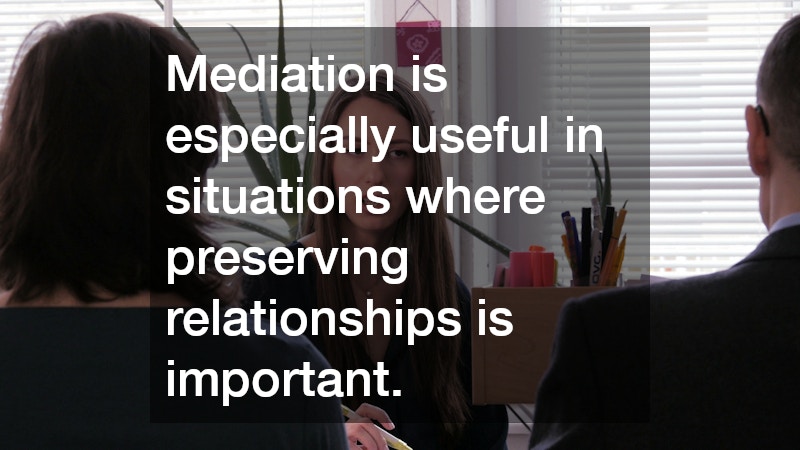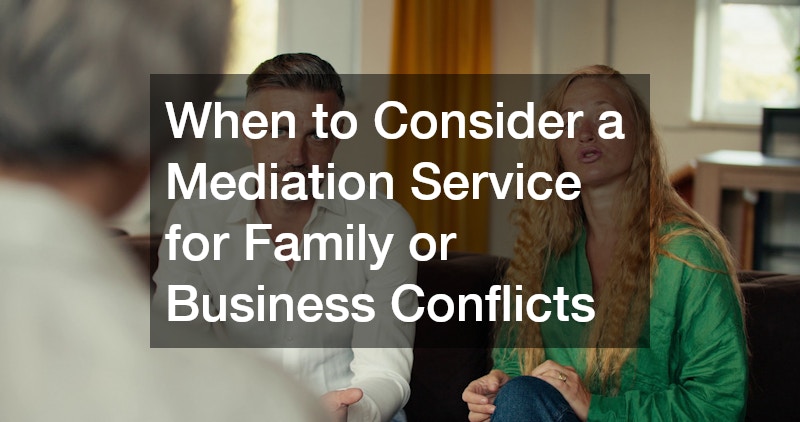Conflict is an inevitable part of human interaction, whether within families or professional environments. Disagreements can range from minor misunderstandings to major disputes that threaten relationships, finances, or overall well-being. While litigation is often seen as the traditional solution, it can be time-consuming, expensive, and emotionally draining. This is where mediation services can play a crucial role. Mediation provides a structured, neutral environment where parties can discuss their differences, explore solutions, and reach mutually acceptable agreements without resorting to court battles.
Understanding Mediation Services
A mediation service involves a neutral third-party mediator who facilitates communication between disputing parties. Unlike judges or arbitrators, mediators do not make binding decisions. Instead, they guide conversations, encourage constructive dialogue, and help participants identify common ground. The goal is to create a collaborative atmosphere that fosters understanding, problem-solving, and long-lasting agreements.
Mediation is especially useful in situations where preserving relationships is important. Family disputes, for example, often involve sensitive topics such as inheritance, parenting arrangements, or eldercare decisions. In business, conflicts may arise over contracts, partnership disagreements, or workplace disputes. In both contexts, mediation allows participants to address concerns openly while avoiding adversarial dynamics that can escalate tension.
When Family Conflicts Call for Mediation
Family disagreements can be deeply emotional and complicated. While some conflicts can be resolved through open communication, others may require the structured approach that a mediation service provides. Consider seeking mediation in situations such as:
- Divorce or Separation: Custody arrangements, division of property, and spousal support can become contentious issues. Mediation helps couples negotiate fair solutions while minimizing stress and hostility.
- Inheritance Disputes: When family members disagree over the distribution of assets, mediation allows all parties to voice their perspectives and reach agreements that respect everyone’s interests.
- Parenting Plans: Conflicts regarding visitation schedules, decision-making authority, or educational choices can be addressed collaboratively, ensuring that children’s best interests are prioritized.
- Eldercare Decisions: Family members may have differing opinions about medical care, living arrangements, or financial management for aging relatives. Mediation fosters respectful dialogue and shared decision-making.
By involving a neutral mediator, families can reduce emotional strain, preserve relationships, and create agreements that are sustainable and mutually acceptable.
When Business Conflicts Benefit from Mediation
In professional settings, disputes can disrupt operations, damage reputations, and affect productivity. Mediation services offer an efficient alternative to litigation, allowing business leaders to resolve conflicts with minimal disruption. Situations where mediation may be beneficial include:
- Partnership or Shareholder Disputes: Conflicting visions, disagreements over roles, or financial disputes can threaten the stability of a business. Mediation helps stakeholders reach compromises that protect both relationships and business interests.
- Contractual Disagreements: Misunderstandings or disagreements over contractual obligations can lead to expensive legal battles. Mediation allows parties to clarify terms and negotiate practical solutions.
- Employee Conflicts: Workplace disputes involving harassment, performance issues, or interpersonal disagreements can be resolved through mediation, maintaining team cohesion and morale.
- Vendor or Client Disputes: Business relationships may be strained by unmet expectations or delivery issues. Mediation enables professional problem-solving without harming ongoing partnerships.
Mediation in business contexts is typically faster and more cost-effective than litigation, preserving both financial and relational resources while providing creative solutions that satisfy all parties.
Key Advantages of Mediation
There are several reasons why individuals and businesses turn to mediation rather than traditional legal routes:
- Confidentiality: Unlike court proceedings, mediation sessions are private. Participants can speak freely without fear of public exposure.
- Control: Parties retain control over the outcome, rather than having a judge impose a decision. This often leads to more satisfactory and sustainable agreements.
- Cost and Time Efficiency: Mediation is generally faster and less expensive than litigation, saving both money and resources.
- Preserving Relationships: By promoting respectful communication and collaborative problem-solving, mediation helps maintain personal and professional relationships.
- Flexibility: Solutions can be creative and tailored to the unique needs of the parties involved, rather than limited to rigid legal frameworks.
These benefits make mediation an attractive option for resolving a wide range of disputes, particularly those involving ongoing relationships or sensitive issues.
Conflicts—whether personal or professional—are inevitable, but the approach taken to resolve them makes all the difference. A mediation service offers a structured, neutral, and collaborative environment for addressing disputes, preserving relationships, and creating fair solutions. From family disagreements over custody or inheritance to business conflicts involving partnerships, contracts, or workplace issues, mediation provides a practical and effective alternative to traditional legal processes.
By considering mediation early in the dispute process, individuals and organizations can reduce costs, minimize stress, and achieve outcomes that are satisfactory to all parties involved. Engaging in mediation services demonstrates a commitment to communication, understanding, and collaboration, ensuring that conflicts are resolved constructively rather than adversarially. In many cases, this approach not only resolves the immediate dispute but also strengthens the foundation for healthier interactions in the future.




